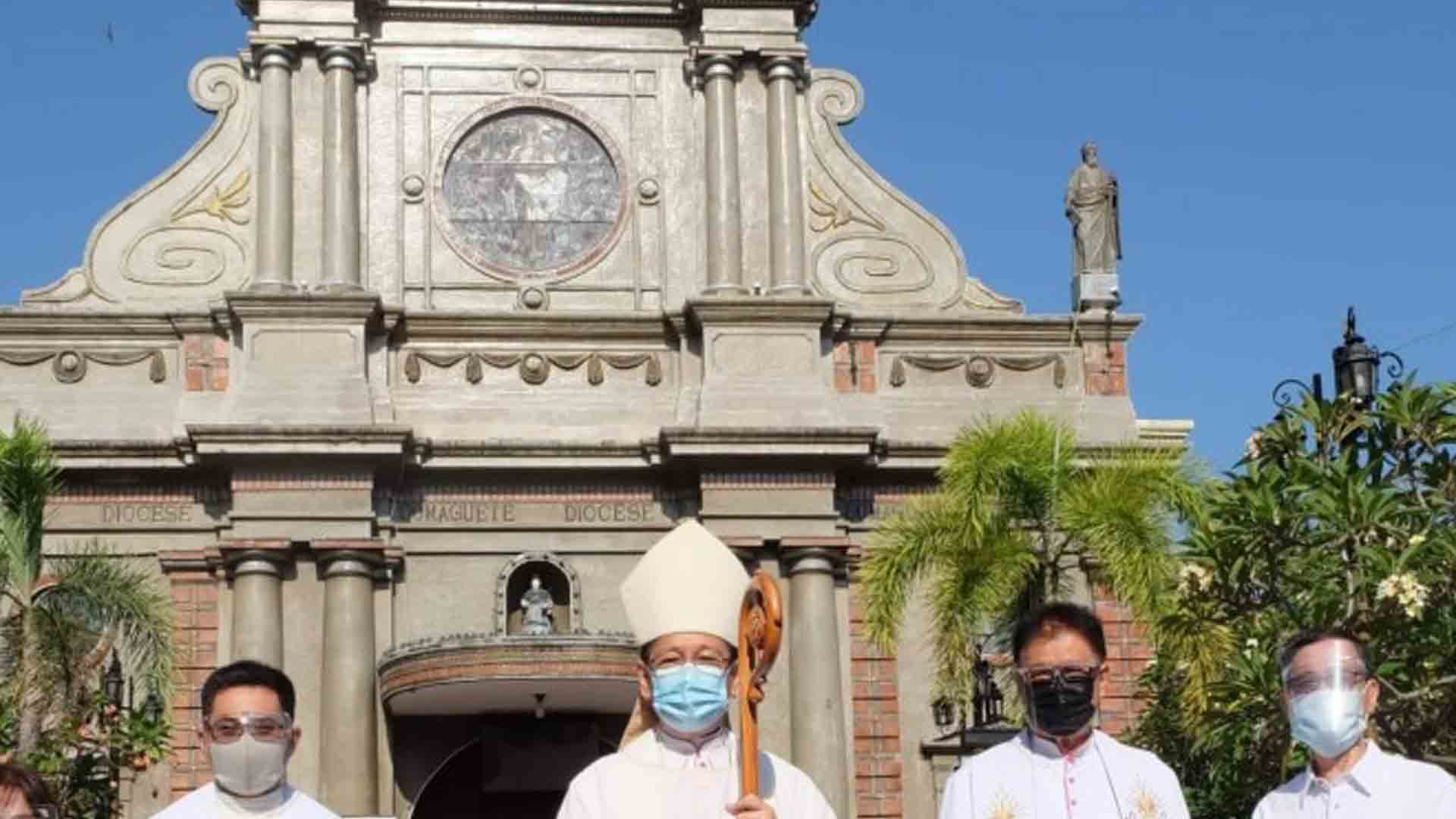The Diocese of Dumaguete is looking forward to respond to the call of faith amid the challenges posed by the prevailing health crisis.
This, as the diocese marked its 66th founding anniversary, just a day after it also officially launched on Easter Sunday its celebration of the 500th year of Christianity in the Philippines.
“What we are trying to do in the diocese is actually the same challenge that the 500th year anniversary of Christianity in the Philippines is presenting to us – the need to look back, to look at the present, and what do we need to do to move forward, especially as a response to the call of faith in our times,” Bishop Julito Cortes told the Philippine News Agency in an interview Monday afternoon, referring to the coronavirus disease 2019 (Covid-19) pandemic.
The challenge of the Holy Father, Pope Francis, to the Roman Catholic Church in the Philippines during its 500th year anniversary, is “to continue with our mission of propagating the faith and the truth about Jesus Christ and at the same time, to look into the needs of our poor and especially those who are in the peripheries of the community”, he said.
Since it was created on April 5, 1955, there have been four bishops appointed to head the diocese–the late Bp. Epifanio Surban, Bp. Angel Lagdameo (retired), Bp. John Du (now the Archbishop of Palo, Leyte), and the current Bishop Cortes.
“Aside from the celebration of the 500th anniversary of Christianity in the Philippines, today is also the 66th anniversary of the Diocese of Dumaguete, and basically, we still have the same challenges,” Cortes said.
The challenge, he said, is to look back at what has happened, adding that they are “grateful for the achievements and contributions of the past bishops who have served the diocese”.
He said each one of the past bishops had “uniquely contributed from the gifts that the Lord has given them and their responses at the particular time that they were in.”
He said Surban, the pioneering bishop of Dumaguete, was faced with the challenges of creating structures needed as a young and new diocese.
What was special about Lagdameo was that he convoked the first Synod of Dumaguete, which was really the “highlight of his ministry”, he said.
Du, with his special gift for “fiscal life and stability” of the diocese, added more structures when it was already celebrating its golden jubilee in his time, he added.
Cortes said he recognizes the need to “look into the present situation and challenges in the next five to 15 years that I hope I will be able to exercise as the bishop of Dumaguete”.
One of his achievements is having put in place a Diocesan Pastoral Assembly (DPA), similar to a synod but more of pastoral in nature, to look into a practical approach of things to do “rather than a theological approach”, he said.
The two-year journey of the DPA concluded in September 2015, which included talking to the people and mapping out directions and the steps to take “in order to move forward as a people of God”, he added.
The next step after the journey is the creation of a diocesan pastoral plan, headed by Msgr. Glenn Corsiga and all the diocesan commission heads that are part of the diocesan pastoral council, the prelate said.
On Easter Sunday, Cortes launched the diocese’s celebration of the 500th year of Christianity, along with other dioceses in the country, with a liturgical rite that opened the Jubilee Door for this particular celebration, at the Cathedral of St. Catherine of Alexandria in this capital.
Those who would pass through the Jubilee Door, provided one has completed the conditions such as going to confession, receiving Holy Communion, and offering prayers for the intentions of Pope Francis, will receive a plenary indulgence once a day for every single visit, for himself/herself, or for the souls in Purgatory, Cortes said.
There are nine Jubilee Churches in the diocese for this, namely, the Dumaguete Cathedral, and the Catholic parish churches in Bayawan City, Siaton, Dauin, Sibulan, Tanjay City, Jimalalud, San Jose, and Siquijor, Siquijor. (PNA)







